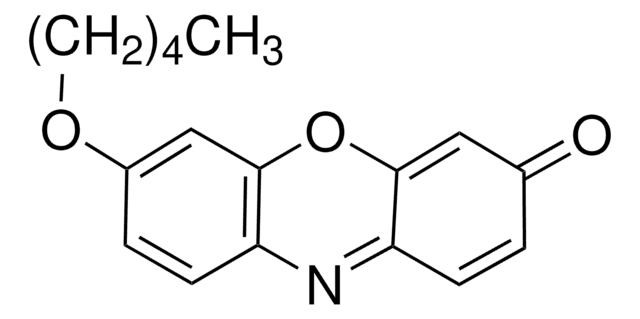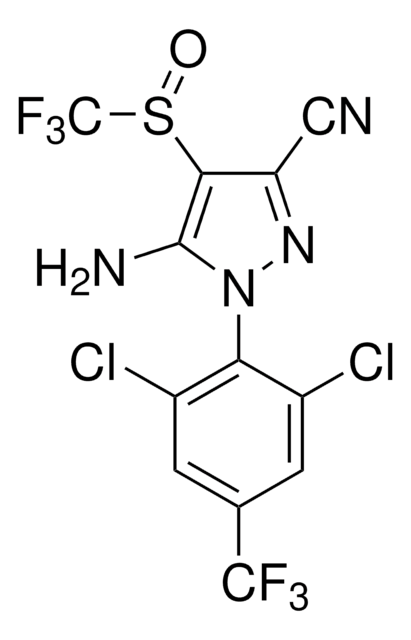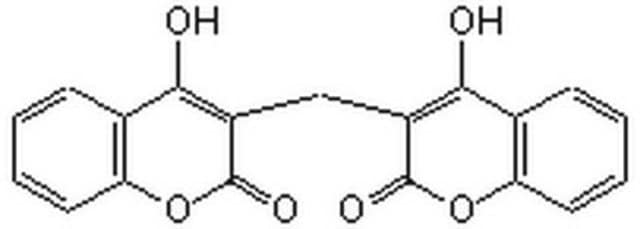46121
Resorufin ethyl ether
suitable for fluorescence, ≥95% (UV)
Synonym(s):
7-Ethoxy-3H-phenoxazin-3-one, Ethoxyresorufin, O7-Ethylresorufin
About This Item
Recommended Products
Assay
≥95% (UV)
form
solid
mp
223-225 °C (lit.)
solubility
DMF: soluble
DMSO: soluble
alcohols: soluble
fluorescence
λex 464 nm; λem 540 nm in methanol(lit.)
λex 571 nm; λem 585 nm in dealkylase(lit.)
suitability
suitable for fluorescence
storage temp.
2-8°C
SMILES string
CCOc1ccc2N=C3C=CC(=O)C=C3Oc2c1.Fc4c(F)c(F)c(OC(=O)CNC(=O)OCC5c6ccccc6-c7ccccc57)c(F)c4F
InChI
1S/C23H14F5NO4.C14H11NO3/c24-17-18(25)20(27)22(21(28)19(17)26)33-16(30)9-29-23(31)32-10-15-13-7-3-1-5-11(13)12-6-2-4-8-14(12)15;1-2-17-10-4-6-12-14(8-10)18-13-7-9(16)3-5-11(13)15-12/h1-8,15H,9-10H2,(H,29,31);3-8H,2H2,1H3
InChI key
ZOSYTBPPLWBBKM-UHFFFAOYSA-N
Looking for similar products? Visit Product Comparison Guide
Application
Packaging
Other Notes
Storage Class Code
11 - Combustible Solids
WGK
WGK 3
Flash Point(F)
Not applicable
Flash Point(C)
Not applicable
Personal Protective Equipment
Certificates of Analysis (COA)
Search for Certificates of Analysis (COA) by entering the products Lot/Batch Number. Lot and Batch Numbers can be found on a product’s label following the words ‘Lot’ or ‘Batch’.
Already Own This Product?
Find documentation for the products that you have recently purchased in the Document Library.
Customers Also Viewed
Our team of scientists has experience in all areas of research including Life Science, Material Science, Chemical Synthesis, Chromatography, Analytical and many others.
Contact Technical Service










